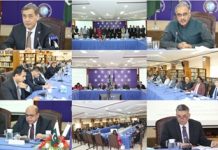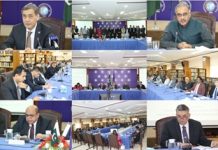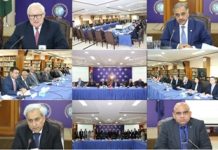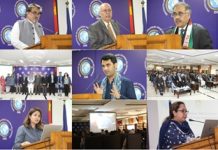Dr. Rasul Bakhsh Rais
The reality of our image
The question of social change and modern rational attitudes of tolerance of difference is a long-term process, but we must set ourselves on this...
The politics of deals
Individual deals with the regime will weaken the democratic struggle. The collective political weight of all the political parties and civil society behind a...
The pipeline may not be a pipe-dream
If cooperation in transporting the energy resources of Central Asia and the Gulf region is held hostage to conflict between India and Pakistan or...
The new realignment
It is beyond belief that the General who promised to the nation that he would bring all the corrupt politicians to justice is virtually...
State of failure
Failing states hurt the poor, marginalised and lower sections of society because they are left to the mercy of non-state actors of varying strength...
Social movement drivers
A fresh exploration of ideas and new activism is happening after decades of cynicism, passivity and conscious de-politicisation of society. Defenders of the old...
Securing judicial independence
Judges must be independent of street pressure as well as demands from other quarters to be able to make impartial decisions. In securing independence...
Same politics, same results
It is difficult to find evidence to support the view that the future conduct of our political leaders is going to be any different...
Reviving the Afghan state
Afghanistan's revival and its future progress would largely depend on regional cooperation that the Afghans may consider as the core principle of their foreign...
Reforming political parties
As our present phase of democratic struggle moves forward, we must debate the flaws in the internal structures of our political parties and whether...








